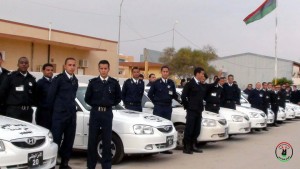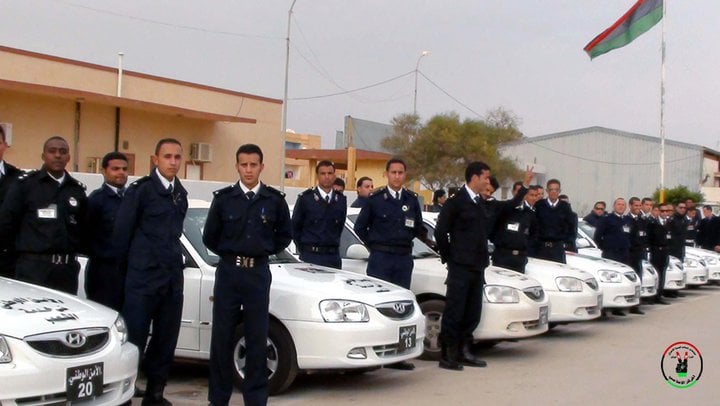By Ahmed Ruhayem.

Benghazi 29 January 2013:
Last Thursday in Benghazi there were at least five killings, none thought to be terror-related. The . . .[restrict]same day, the British Foreign Office urged its citizens to leave the city. In spite of that, the Ministry of Interior gave a statement to the Libyan news agency (LANA) asserting Benghazi was safe, following the implementation of the security plan.
The implementation of the security plan is indeed underway, according to Mahmoud al-Barassi, a civil society activist, with background information on the scheme. However it is not yet going entirely according to the plan. The requirement is that the national army should supply the majority of the 15,000 to 20,000 personnel needed to effectively secure the city. To date, only a small number of army personnel has been assigned to the job and they are therefore insufficient to implement the security plan effectively .
Al-Barassi summed up the security deployment as being of three stages over six months, throughout all of which the support of the national army will be critical to fill in police shortages. Presently, the police force is recruiting and training qualified applicants. The good news is that in Benghazi alone, more than 1,500 Supreme Security Committees (SSC) members had, by mid-December, applied to join the police and this number has since increased. As of the new year, 868 applicants had been accepted and were being put through the training programmes. Further batches of trainees will follow.
In the current first phase of the security plan, lasting 30 days, residents ought to be seeing a very visible presence of the police and national army all around Benghazi. This has not happened because of their limited numbers. Security personnel have only been present at key intersections. Although their appearance and conduct demonstrate a high level of professionalism, they have not attempted to stop vehicles without license plates nor with tinted windows – the stated objectives of the first phase.
In the second phase, again lasting 30 days, security personnel will also be required to conduct random weapon searches. Drivers carrying arms with no permits will have their weapons confiscated. However, no arrests, charges or fines will be applied.
In the third phase of the security plan, not only will security personnel continue applying the measures as in previous phases, but now weapon violators will be arrested and prosecuted.
Thus after the first three months, the application of Libyan criminal law should come into full effect. The support of the army will be absolutely essential during the entire six month period, to allow the police force an opportunity to increase its personnel, gain confidence and acquire the necessary expertise to themselves provide an effective and efficient security presence. The entire security scheme is being underpinned by Closed Circuit TV cameras, covering all sensitive locations in Benghazi. Some of these have already been installed at key points.
[/restrict]








